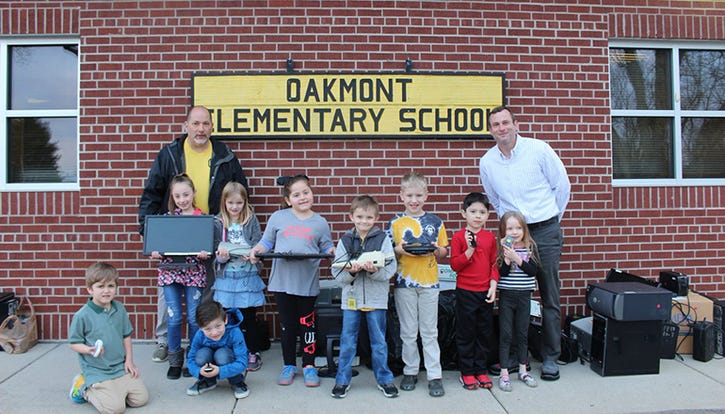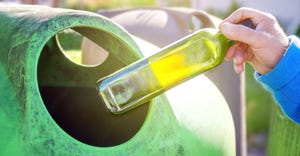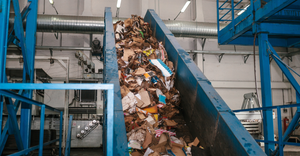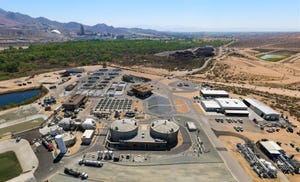TERRA Initiative Educates on Role of R2-certified Electronics Recyclers
TERRA aims to educate businesses and organizations and draw them to one place to access R2-certified recyclers.

While electronics comprise about 2 percent of the solid waste stream, they are on the way to becoming the fastest-growing source of trash worldwide, according to the United Nations University. Discarded electronics also account for up to 70 percent of landfilled hazardous waste, reports the U.S. Environmental Protection Agency.
We hear of mismanagement of these materials and its environmental and societal consequences. This includes a rising tide of e-waste flowing into overseas dumps, sometimes shipped there from the U.S.; unsafe dismantling of components containing potentially dangerous materials; and incidents where data is not securely destroyed.
These are among reasons startup company TERRA was created.
Launched by Steven Napoli, in partnership with electronics processor Tri-Star Recycling in Nashville, Tenn., TERRA is an initiative to educate businesses and organizations and draw them to one place to access R2-certified recyclers—professionals who meet environmental and safety standards developed by Sustainable Electronics Recycling International (SERI).
Focused in the Nashville region with plans to grow, TERRA offers a list of vetted, certified recyclers accessible online and is going out and talking to businesses.
Other components of the TERRA initiative are a program whereby the public can mail in electronics to be recycled at a discount and community events where people can drop off recyclables. Napoli has also gone out to schools, challenging students to collect unwanted electronics during fundraisers and get paid for what they bring in.

Getting big businesses to invest in e-cycling is TERRA’s biggest push now. It’s working to accomplish this by figuring out how to penetrate companies’ corporate structures to reach the people who influence strategic decisions. This is a task that recyclers have limited time for.
“As TERRA comes in from an educational standpoint, I am working to talk to chief marketing officers, public relations and sustainability staff to explain the importance of R2 certification and to leverage this opportunity to connect them with local processors,” says Napoli.
One challenge e-cyclers typically find is that when they approach large enterprise clients, those clients often don’t know what goes into recycling electronics, says Clarence Hollins, president and CEO of Tri-Star Recycling. And this has especially been a reality recently.
“In the last five years or so, there’s been a shift from free services to charging to cover the cost of recycling responsibly, but the market needs to understand this,” says Hollins.
There are more than 600 R2-certified recyclers nationwide who are routinely inspected and follow best practices, says Napoli.
“They securely wipe or destroy all data. They refurbish or resell equipment if it has value. What’s remaining is decommissioned and recycled properly. We are driving as much business to these operators as possible,” he says.
Hollins believes through TERRA’s educational approach, companies will become more aware of missing components in their process. Gaps they may need to fill in could be ensuring data is properly destroyed and that they have documentation of this. Or it could be knowing they not only are working with R2-certified businesses but that those businesses deal with certified third parties to ensure a proper process through each step.
The mail-in program, called Done With it, includes two options: one is simply to mail in up to 30 pounds of electronics that will be destroyed, along with data. But customers who want to go a step further can get a certificate of destruction from the recycler for an additional fee.
Napoli anticipates getting buy in for Done With it won’t happen overnight.
“Not everyone wants to pay to have their electronics recycled, so it will take time to educate on the potential dangers of e-waste and why proper recycling is important,” he says.
While he’s begun facilitating fundraisers in schools, Napoli is now in preliminary discussions with a local environmental group that works with the educational system. The goal is to integrate the topic of electronic waste into educational programming.
The Bellevue Community Fund, a charitable arm of its Nashville-based neighborhood, does annual recycling events and brought in TERRA this year to add electronics.
“It’s important for us to partner with local companies, especially startups, and we are proud to partner with a business in this growing field of electronics recycling,” says Charlie Tygard, trustee for Bellevue Community Fund.
Punctuating that Nashville’s landfill is quickly approaching capacity, he says the community is aware of the importance of diversion.
“They look to this event as a way to clean the shelves and responsibly recycle,” he notes.
Napoli thinks consumers will continue to shape how communities and businesses, in particular, look at e-cycling, especially in the near future when there is a transition to 5G devices. So, part of his pitch to businesses and organizations is they can join the TERRA Alliance to co-brand with TERRA.
“Those who haven’t taken e-waste seriously will start,” he explains. “And those who have been doing it will want to prove this to their consumers. They will need to tell their story of how they are doing it properly and will merchandise that to investors and customers. That brings value to their businesses.”
About the Author
You May Also Like




